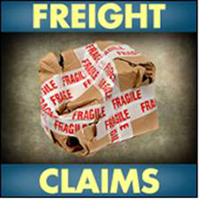
In this short article we’d like to share some of the most important things you’ll need to consider should you decide to file a freight claim. So, first and foremost:
What is a freight claim?
There are alternative words, such as shipping/cargo/ transportation claim or loss and damage claim, and one would file such a claim to recover their costs from a carrier (not including profits), although in some cases claiming profits may be considered acceptable as well.
What details to include in your claim?
You need to bear in mind that most carriers (such as UPS or FedEx ) provide their own forms for filing freight claims and you can usually download them from their websites. BUT, no particular form is necessary by law, as long as the following details are specified:
- The shipment
- The loss or damage type;
- The total of the amount claimed;
- A clear demand for payment.
- And the following documents are provided:
- Shipment invoice;
- Delivery receipt;
- Bill of lading;
- Invoice showing the value of the product being claimed;
- Invoices for costs incurred.
It’s also useful to include some additional info, such as the vehicle number and the delivery date, to identify the shipment.

Remember that if your claim is filled out incorrectly or some of the documents are missing, the chances of getting back your money are very slim. Every detail and every piece of paper matters and should be handled with great care, which is why it might be a very good idea to hire a team of professionals to help you to go through with this multifaceted process.
Deadlines
Another important thing to consider. For example, UPS freight acknowledges claims within 30 days and some other international carriers may give you up to 90 days. However, it’s always a good idea to file your claim as soon as you can, meaning you should begin to collect the paperwork for your claim the moment you notice a loss or a damage. The longer you wait, the more chances there are to lose track of your records. That’s another reason to delegate the filing of your freight claim to a firm that specializes on freight audit, or at least to make sure that there are people on your team who carefully inspect all your packages as soon as they arrive, every time.

claim_3What happens then?
Then you wait. The carrier is obliged to respond and they do in the end, but this may take longer than expected: usually, 90 days or even more. That’s why we recommend you to be organized and to use some kind of procedure that works for you, in order to track your claims and make sure you get adequate response form the carrier. Again, a trained consultant may help you to come up with an effective procedure that works best in your business environment.
